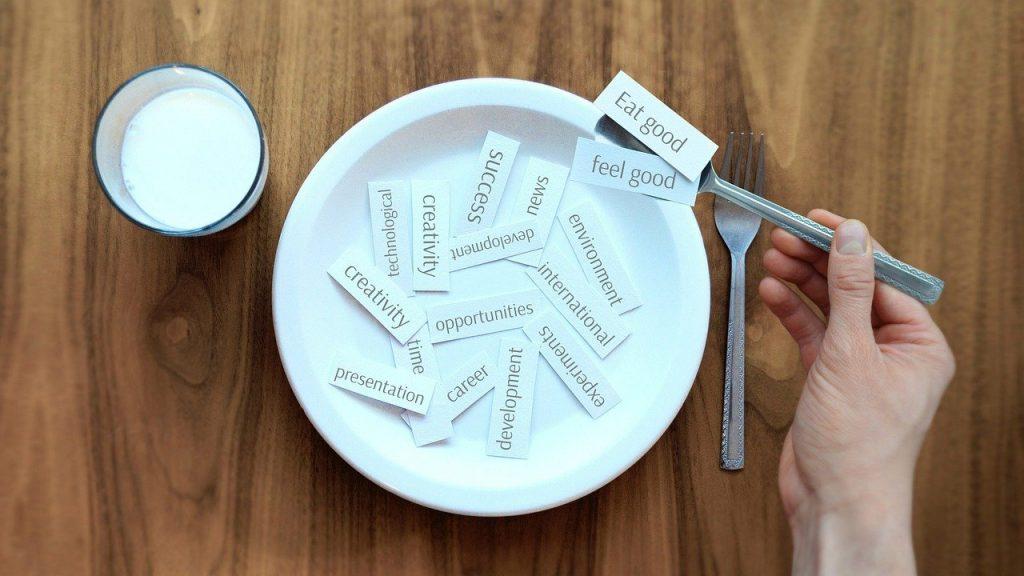
How to Start Intermittent Fasting: A Beginner’s Guide
Intermittent Fasting
A type of diet in which there are times when you don’t eat and times when you do. Intermittent fasting has been shown to help people lose weight and may even help prevent or reverse the start of some diseases.

Empirically Confirmed
In contrast to many other diets, intermittent fasting is more about when you eat than what you eat.
When you do intermittent fasting, you only eat at certain times during the day. Some people find that restricting their food intake to one meal per day or fasting for a certain number of hours per day helps them shed extra pounds. According to the scientific literature, there are also clear health benefits.
Scientific studies have shown that the human body can continue to function normally for weeks or months without eating. Before agriculture, when people were still hunters and gatherers, they could live and even thrive for long periods of time without food. They had to spend a lot of time and energy on things like hunting and gathering nuts and berries to keep themselves alive.
Implications
Maintaining a healthy weight was much less of a challenge in the past because of the relative ease of life compared to the modern world. Before the widespread availability of personal computers and late-night television programming, it was much simpler for people to stop eating before bed. A lot of the servings were cut down. In general, more people exercised, worked, and played outside.
Settlements
At any time of the day or night, you can tune into your favorite shows on TV or surf the web for some light reading. We stay up later to catch up on our favorite shows, play our favorite games, and chat with our friends online. We graze on snacks and watch Netflix for the better part of the day and night. When you eat more calories and don't do as much physical activity, your risk of obesity, type 2 diabetes, heart disease, and other diseases goes up. Studies suggest that intermittent fasting may counteract these inclinations.

There are many ways to do intermittent fasting, but they all start with planning when you will eat and when you will not. For instance, you may try fasting for sixteen hours each day and eating only for the first eight. You might also choose to skip two meals a week or even one meal every day. Intermittent fasting strategies may be tailored in several ways.
Weight Losing Tricks
Everyone who practices intermittent fasting describes it as a way of life rather than a diet. They come for the purpose of losing weight but stay for the health advantages.
Most individuals practice eating whenever they are awake, which is in contrast to the intermittent fasting lifestyle. If you’re eating three squares a day plus snacks and not exercising, your body will use the fat you’ve stored as fuel. Intermittent fasting is effective because it lengthens the time between meals, allowing your body to use up the calories from your last meal and switch to fat-burning mode.

Different methods of intermittent fasting exist, but they all include alternating periods of eating and fasting throughout the day or week. During fasting periods, you consume very little or nothing at all.
First method 16/8
Skipping breakfast and having a narrow eating window of just 8 hours each day (for example, 1–9 p.m.) is central to the Leangains strategy, often known as the 16–8 approach. You then go into a 16-hour fasting period. Most individuals won’t have any trouble sticking to this schedule permanently.
Second method 5:2
Another option is to follow the “5:2 plan,” which involves five days of extreme calorie restriction followed by two days of normal eating. On the other two days, you eat just one meal of 500 to 600 calories. Let’s say you’ve chosen to stick to your normal eating schedule six days a week, but on Mondays and Thursdays, you’d want to try something different.
Third method Eat-Stop-Eat
This involves going without food for 24 consecutive hours once or twice a week, such as skipping dinner one night and lunch and dinner the next.
Long-term fasting, including for 24, 36, 48, and 72 hours, may be harmful or counterproductive. When people fast for extended periods of time, their bodies adapt to the possibility of future starvation by storing fat.

Evidence suggests that two to four weeks of intermittent fasting is necessary for the body to adjust. As your body gets used to the new routine, there may be a period when you feel more hungry or irritable. But he notes that once the adjustment period is over, research participants often continue with the strategy because they start to feel better.
Dietary choices during intermittent fasting
Water and zero-calorie drinks like black coffee and tea are OK while you aren’t eating.
Additionally, “eating properly” at your meal times does not include bingeing. If you fill your mealtimes with high-calorie junk food, enormously big fried foods, and desserts, you won’t likely lose weight or get healthy.

The best part about intermittent fasting is that a variety of meals may be consumed and relished. Eating with others and sharing the mealtime experience adds happiness and promotes good health, therefore, we want people to be conscious and enjoy eating wholesome food.
Like most nutritionists, I believe that whether you want to practice intermittent fasting or not, the Mediterranean diet provides a solid example of what to eat. When you choose complex, unprocessed carbs like whole grains, leafy greens, healthy fats, and lean protein, you almost never go wrong.
Good choices comprise:
- Slimmer cuts of meat like fish, poultry, and tofu
- Eat your fruits and veggies!
- Brown rice and quinoa are examples of whole grains.
- Cheese, yogurts, and other dairy products with low fat
- The Nuts and Seeds

Remarkably Effective For Weight Loss
Intermittent fasting can help you lose weight faster and keep it off longer. This is one of the best reasons to try it. Intermittent fasting may cause a natural drop in calorie intake because it means eating less often.
Modifies Hormones
Intermittent fasting not only affects calorie intake but also hormone levels, both of which contribute to the weight loss process. Not only does it increase growth hormone and decrease insulin, but it also increases the fat-burning hormone norepinephrine.
Short-term fasting may raise your metabolic rate by 3.6–14% due to these hormonal changes.
Safest Way To Lose Weight
This study found that, compared to other studies on weight loss, following this diet plan could lead to a 3-8% reduction in body weight over a period of 3–24 weeks. Also, people lost an average of 4.7 inches around their waists, which is a sign that they lost a lot of the dangerous visceral fat that builds up around the organs and makes people more likely to get sick.
Consumes Calories
Keep in mind that the main reason intermittent fasting works is that it leads you to eat fewer calories overall. If you regularly eat excessive amounts of food at your meals, you may not be able to lose weight.

How It Affects Your Hormones and Cells
When you fast, your body undergoes several cellular and molecular changes. For example, hormone levels in the body can be changed to make fat stores more accessible.
Important cell repair processes are initiated, and gene expression is altered. Several changes occur in your body when you’re fasting, including the following.
HGH: Human Growth Hormone
Often, growth hormone levels can increase by a factor of five. Among the benefits of this, but not all of them, are more muscle mass and less body fat.
Insulin
Insulin levels decline sharply when insulin sensitivity increases. Reduced insulin levels increase the use of body fat stores.
Repairing cells
Fasting triggers, the body’s natural cellular repair processes. Autophagy is one such process by which cells degrade and dispose of old and malfunctioning proteins that have built up inside the cell.
Expression of genes
The roles of many anti-aging and disease-prevention genes have been redefined. Changes in hormone levels, cellular structure, and gene expression are at the root of intermittent fasting’s health benefits.

Advantages
Fasting intermittently makes your day less complicated.
Change in habits, simplicity, and stress reduction are important for everyone. Your life is made even simpler by intermittent fasting, which dietitians truly like. Don’t think about breakfast when you wake up. You only need a glass of water to get your day going.
As someone who enjoys both eating and preparing food, never found the requirement to consume three meals per day to be onerous. Intermittent fasting allows you to cut back on your food intake by one meal, which means you have less to think about when it comes to planning, preparing, and worrying about food. How much easier it makes your life. While losing weight is fantastic, it’s not the only advantage of fasting.
Intermittent fasting increases longevity.
Scientists have long known that reducing calories can increase lifespan. This makes logical sense. Your body tries to prolong your life when you’re starving.
There’s just one problem: Who wants to starve themselves in the name of living longer?
Don’t know about you, but most people are interested in enjoying a long life. Starving doesn’t sound very appetizing.
The good news is that limiting calories and fasting sometimes work in many of the same ways to make you live longer. In other words, you enjoy the advantages of a longer life without the inconvenience of going without food.
Alternate-day fasting may lower the chance of developing cancer.
There hasn’t been a lot of study and testing on the connection between fasting and cancer, so this one is debatable. However, early reports seem promising.
According to research done on 10 cancer patients, fasting before chemotherapy may help lessen its negative effects. Another study that looked at cancer patients who fasted every other day and came to the same conclusion that fasting before chemotherapy would increase the number of people who get better and lower the number of people who die from cancer supports these results.
According to this comprehensive review of several research studies on fasting and illness, fasting appears to reduce the risk of not only cancer but also cardiovascular disease.
Compared to dieting, intermittent fasting is significantly simpler.
Most diets fail because we do not stick to them over time, not because we eat the wrong foods. It’s a problem with behavioral change, not nutrition.
This is where intermittent fasting excels because, once you let go of the notion that you must eat constantly, it’s really simple to put into practice. For example, one study found that intermittent fasting helped obese people lose weight and that “subjects quickly adapt” to a schedule of intermittent fasting.
Diets are simple to think about but challenging to follow. Contrarily, intermittent fasting is both challenging to think about and simple to carry out.
A healthy brain
Intermittent fasting raises Brain-Derived Neurotrophic Factor (BDNF) levels, which may stimulate the development of new neurons. More than that, it may also serve as a safeguard against the onset of Alzheimer’s. Studies have shown that intermittent fasting increases the ability of nerve cells to repair DNA damage.
Anti-aging
There are multiple anti-aging pathways in the body that can only be activated during a small window of time each day when eating. Intermittent fasting has been shown to extend life expectancy in rats. Rats that abstained from food for some portion of their day had a 36-83% longer lifespan, according to the research.

Drawbacks
One strategy for controlling your caloric intake and working to enhance your metabolic health is intermittent fasting. Even though this way of eating might be part of a healthy diet, it might take some time to get used to at first. Furthermore, not everyone should practice intermittent fasting, to put it simply.
Possibly contradicts your intuition
Intermittent fasting is an extreme lifestyle choice that calls for discipline, restraint, and planning. Although it may seem strange at first, some people may find it easy to use these methods to restrict their calorie intake over a given period. If you tend to eat whenever the mood strikes, this may be particularly relevant to you. Also, intermittent fasting can be annoying if you don’t like to stick to a strict schedule.
You could be hungry
When you’re not used to fasting, even an 8- or 12-hour fast may seem like a long period. A hungry stomach may accompany you to bed several times a week. The reality is that after a while, that might feel downright unpleasant and impossible to maintain. You may also need to learn to override your body’s natural cues for hunger and fullness if you don’t want to break your fast before you’d ideally like to.
Your mood can be affected by the adverse effects
When you first start intermittent fasting, you may notice several side effects, hunger being just one of them. To some extent, why this might be the case. Fasting has many negative side effects, including the obvious hunger you’ll feel at first, but also possible headaches, constipation, fatigue, and insomnia.

Weight Losing Tricks
Negative effects, such as hunger, headaches, and fatigue, may be experienced by those engaging in intermittent fasting. Some people find that fasting has negative effects on their mental health, particularly if they have to deal with the stress of adjusting to a new routine while also dealing with low blood sugar.
Consult your physician before beginning any kind of fasting regimen, especially if you have a preexisting health condition.
This is especially crucial if you:
- Being a diabetic.
- Struggle to maintain a healthy blood sugar level.
- Hypotension is the result of low blood pressure.
- Take your medicine.
- Carry a light load.
- Have a history of struggling with your weight.
- If you’re a woman who hopes to start a family soon.
- Female with a documented history of amenorrhea.
- Have a baby in their arms or are expecting one.
Intermittent fasting has been widely practiced and appears to be quite safe. If you are otherwise healthy and well-nourished, skipping meals for a few days won’t do much damage.

There are many different ways to practice intermittent fasting, and no single approach can be said to guarantee positive results for everyone. People should try out various styles to find the one that works best with their personality and way of life.
- Long-term fasting can be harmful if you aren’t physically ready for it, and this is true for all variations of intermittent fasting.
- These dietary methods aren’t appropriate for everyone. If a person is predisposed to disordered eating, these strategies may worsen their relationship with food.
- Any person with a preexisting medical condition, such as diabetes, should consult their doctor before beginning any fast.
- On days when you are not fasting, it is crucial to have a healthy, balanced meal for the best outcomes.







